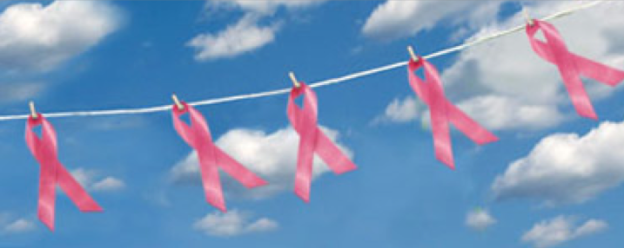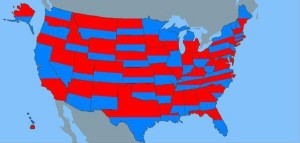I didn’t realize it was breast cancer awareness month, but a notice at a restaurant chain might have alerted me. It said that an employee had “lost her fight against cancer,” and announced that certain proceeds of sales for the month would go to her family — an action that I hope uplifts the family without pushing aside any other families in similar situations.
Something about the notice bothered me, however. I know nothing about the woman who died except that she died of cancer and that she worked for that restaurant chain. But I have no reason to think that she was a loser.
That last remark sounds offensive, but in our noun-based culture, losing does mean more or less the same as being a loser. (Dealing with people or things in terms of what they do rather than what they “are” — what arrogance to think we could know! — is a huge matter, but let’s stick to what we have at hand.)
Ava, which was not this woman’s real name, had a family. She did not live to see her children grow to maturity and maybe get married and have children of their own, but she lived and nurtured life. That is fairly remarkable in a universe where more than 99.999999999 percent of everything we know seems to do nothing except for the odd chemical or nuclear reaction.
Of course, no one would come close to thinking that her death of cancer while she was relatively young overshadows her life, but we move in that direction by making a lost fight her epitaph. Some people “win their fight against cancer.” But not Ava, we hear. There are any number of reasons why, but winning and losing always have an undercurrent of ability or willpower. Any odds can be overcome if you try hard enough is a popular misconception. So to say that some people lose a fight with cancer is subtly to lessen them, however unintentionally.
Did Ava fight it? I ask because of how cancer acts: cells in the body reproduce, a necessary function, but in an out-of-control way. If we think we are separate from our body, then it would make some sense to say we could fight it. But a key point this blog makes, explained in The Logic, is that in our individual incarnations we are the sum of our parts. Some people — reputed psychic healers or yogis perhaps — might achieve unusual control over bodily processes, and we would be wise to investigate this, but most of us cannot will our bodies to change the way they act at the cellular level. We can no more fight our cells than we can force them to do things we want them to do.
The point I am trying to make here might seem of no consequence, but how we think about death reflects a lot of how we think about life. Human life begins with our coming into a particular, individual form of existence, ends with our departure from it and includes everything in between, without exception. Usually it lasts a good number of years, but not always. And lives that last shorter than others are not battles lost. No one loses a fight with old age, or with a natural disaster, or with faulty electrical wiring.
We die, at different times of life, in various and sometimes painful ways, almost always before we would wish it. In that respect, we are all born losers. Or we are all born winners through the remarkable achievement of life through us. And we die, sometimes of cancer. Enough said.


